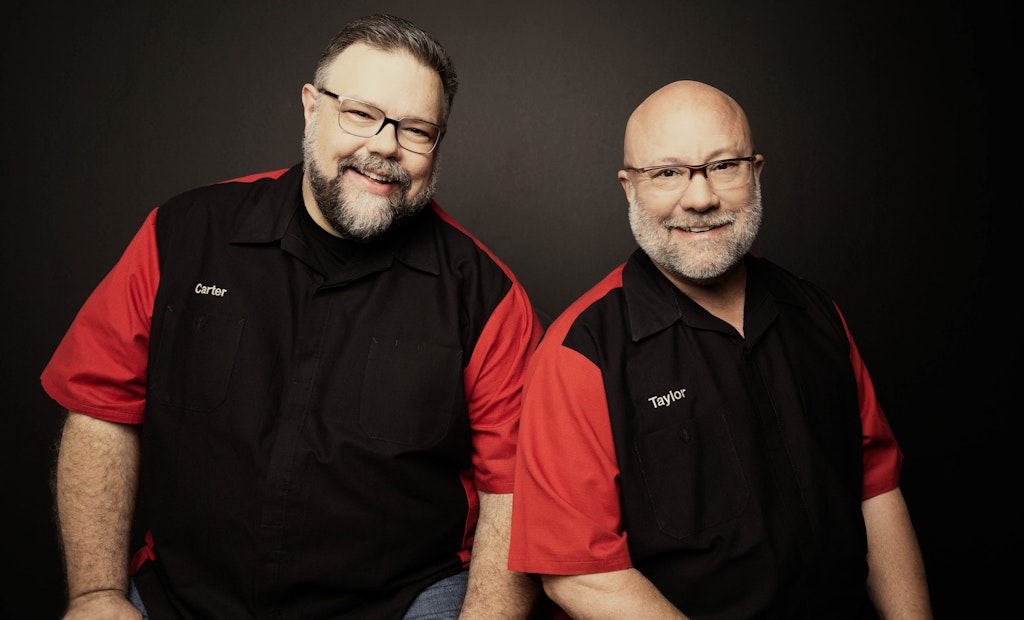Interested in Business?
Get Business articles, news and videos right in your inbox! Sign up now.
Business + Get AlertsThese days, we’re all sort of culturally conditioned to believe we have to be all things to all people. And when you’re running your own business, there’s even more pressure.
When you first start out, every customer seems like a “good” customer because you need the work. So you cut deals with customers who can’t afford you, and do jobs for people who will never be happy. What you end up with is a lot of one-time customers who are more trouble than they’re worth. Customers who aren’t profitable and make outrageous demands of you and your team.
And because you’re so busy serving them, there’s no room for the customers who are ideal for you. The ones you could make happy, build relationships with, and profit from serving.
The truth is that trying to be all things to all people can stunt your growth, up your frustration, and lead to a lot of wasted energy and effort. Your entire team will suffer. Your bottom line will suffer. Your ideal customers will suffer. And your business will suffer.
Sure, this mindset may have gotten you to where you are — it may have even seemed necessary — but it’s not going to get you to where you could and should be. To make room for your ideal customers, be more profitable, and lose the unnecessary frustration, you’ve got to choose your customers using a filter. By filter we mean an “Ideal Customer” checklist. Decide who you exist to serve.
One thing that can help you create this checklist is to look at your best customers over the years. What did they have in common? What was it like to work with them? What was important to them? How did they communicate with you? Create a standard.
Once you have your “Ideal Customer” checklist figured out, run every potential customer by it. If they don’t make the grade, move on. At first, it may seem frightening to turn down work, but when you’re working with the wrong customers, the money’s usually not worth it. Focus on the right people, be willing to pass on the wrong people, and everything will get easier and more profitable.
Marketing to Your Ideal Customers
Of course if you’re not trying to be everything to everyone, you can also laser focus your marketing and save yourself money and effort on that front.
When you’re analyzing your best customers and thinking about who they are, what they have in common, and what it’s like to work with them, you also want to think about how they come into your business. Simply knowing who your ideal customers are, where they hang out, and what type of marketing works for them can give you direction on where to focus your marketing spend. It also makes it easier to see which marketing efforts would be a waste of your time and money.
For example, while TikTok might be a fun place for teenagers to hang out, are teenagers really your ideal customers? Probably not. Why waste your marketing money and efforts there? Or, if your most troublesome customers tend to be super budget-focused while your ideal customers just want the work done right no matter the cost, why are you putting ads and discounts in cost-cutting circulars?
The more clarity you have around your ideal customers and the more willing you are to go after them and cut ties with the rest, the more clarity you’ll have around how and where to spend your marketing dollars.
Take the time to map out who you want to work with and be willing to be the wrong company for some people. Trust us, it’s one of the best uses of your time as a business owner.
Need Permission?
Maybe this all sounds fine and dandy to you, but you feel like you need permission to stop trying to be the right company for everyone in your service area. If so, here it is: You don’t have to be all things to all people.In fact, you shouldn’t be.
Not even Apple is all things to all people. If it were, there would be no Android phones or PCs. And if Apple can’t be, what the makes you think you can and should be? It doesn’t mean you or Apple aren’t good enough for everyone. It means you aren’t right for everyone. That’s a big difference.
This notion should be liberating. It should create clarity and focus. Because when you know who you should be serving, it’s easier to see who you shouldn’t be serving. And that meansall the time, effort, and marketing dollars you previously put into people who were wrong for your business can now go into the people who are right for your business. That’s how you get from where you are to where you want to be.
About the Authors
Carter Harkins and Taylor Hill are the co-founders of Spark Marketer, a Nashville, Tennessee-based digital marketing company that works primarily with service businesses. They're also co-creators of the award-winning app Closing Commander, which helps contractors close more estimates effortlessly, and co-authors of the book, Blue Collar Proud: 10 Principles for Building a Kickass Business You Love. Both regularly speak at service industry trade shows and conferences across the nation. Visit www.sparkmarketer.com, www.about.closingcommander.com, www.facebook.com/sparkmarketer, or www.facebook.com/closingcommander.






